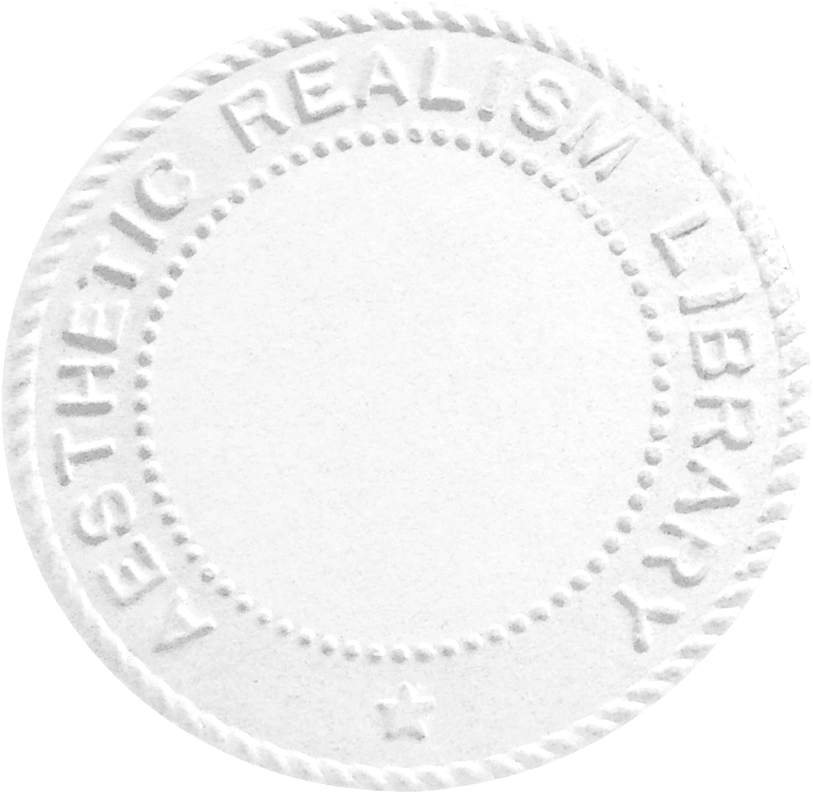Translations by Eli Siegel
Art Poétique, By Paul Verlaine
Of music before everything—
And for this like the Odd more—
Vaguer and more melting in air,
Without anything in it which weighs or arrests.
It must also be that you do not go about
Choosing your words without some carelessness:
Nothing dearer than the greyish song
Where the Wavering and Precise are joined.
Something like beautiful eyes behind veils,
Something like the trembling wide day of noon,
Something like (when made gentle by an autumn sky)
The blue jumble of clear stars!
For we desire Nuance yet more—
Not color, nothing but Nuance!
Oh! only nuance brings
Dream to dream and flute to horn!
Keep away from the murderous Sharp Saying,
Cruel Wit and Impure Laugh,
Which make weep the eyes of Blue Space—
And all that garlic of low cooking.
Take eloquence and wring its neck!
You will do well, in energetic mood,
To use Rhyme made wise somewhat.
If it is not watched, where may it not go?
Oh, who can tell the wrong-doings of Rhyme?
What deaf child or mad black man
Has made for us this penny toy,
That sounds hollow and false heard precisely.
Let music be, more of it and always!
Let your verse be the thing in motion
Which one feels who flees from an altering soul,
Towards other skies to other loves.
Let your verse be the happy occurrence,
Somehow within the restless morning wind,
Which goes about smelling of mint and thyme…
And all the rest is literature.
From Hail, American Development (Definition Press)
© 1968 by Eli Siegel



Eli Siegel’s note to the poem:
Art Poétique, By Paul Verlaine. 1950. That music and sculpture are both arts and have both pleased the mind of man is sign sufficient that the indefinite and definite—which music and sculpture are—can both please. At various times or places in the world, the definite beckons more; and then the indefinite may. The definite and indefinite may appear variously or be accompanied diversely or use material that changes. In France, after Romanticism as then understood and after definite, classical, meticulous, imposingly charming Parnassianism, the Indefinite once more seemed the very thing mind wanted, or at least some minds. Paul Verlaine’s Art Poétique is one of the great honorings of the Indefinite as large in reality, central in art. We either, in mind, want to touch a wall or get away from a wall touching us. The need to be in the unboundaried and intangible is just ours. This need for the wavering and not glaringly tidy is in the first line of Verlaine’s call for the airy as real. When Verlaine in 1874 wrote De la musique avant tout chose, he was saying something different for French poetry. French poetry, while, when it was poetry, was always musical, had not said music was the principal thing. Justness and depth of perception, visual grasp, verbal flexibility and exactitude, largeness of sentiment—things such as these had been first. When Verlaine said music was before everything, he was correct, correct even for the past; but French poetry after this poem of Verlaine, knew it was going for something else, was on a path designated Music rather than Verbal Propriety or Proportionate Judgment. It was not that music did not care for these. What is being implied is that if Music is honored, verbal correctness and valid perception will be taken care of likewise. And poetry has been much about this last statement. Music in poetry is a way of being just to reality as unseen and reality as having clear impact. Within Verlaine’s poem—I’m not forgetting demurs at some phrases—is one of the great presentations of poetic purpose. Reality, made something else than that finally seized by a self or clenched by it, is reality more usefully apprehended, more healthfully respected.